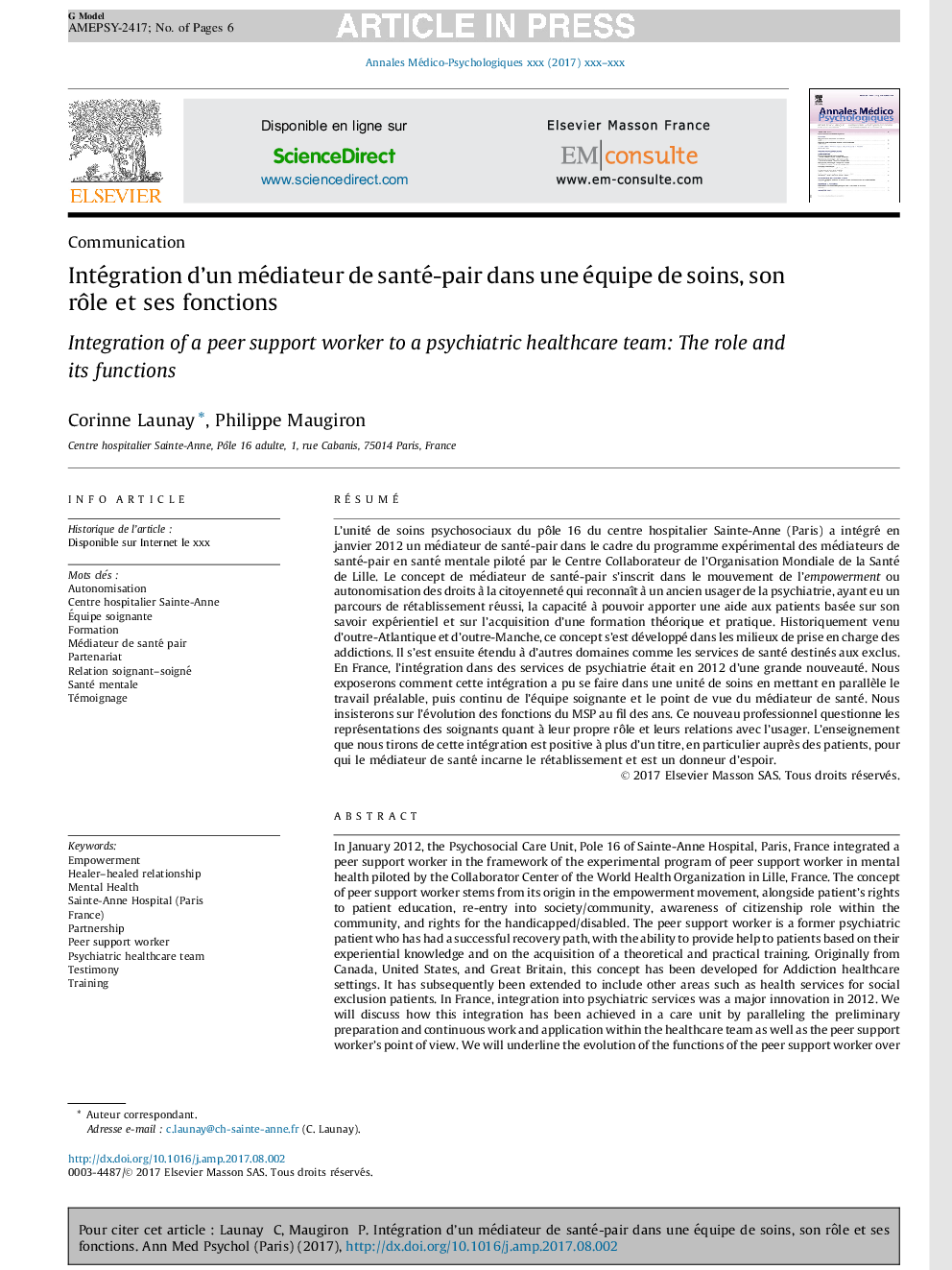| Article ID | Journal | Published Year | Pages | File Type |
|---|---|---|---|---|
| 6785718 | Annales Mdico-psychologiques, revue psychiatrique | 2017 | 6 Pages |
Abstract
In January 2012, the Psychosocial Care Unit, Pole 16Â of Sainte-Anne Hospital, Paris, France integrated a peer support worker in the framework of the experimental program of peer support worker in mental health piloted by the Collaborator Center of the World Health Organization in Lille, France. The concept of peer support worker stems from its origin in the empowerment movement, alongside patient's rights to patient education, re-entry into society/community, awareness of citizenship role within the community, and rights for the handicapped/disabled. The peer support worker is a former psychiatric patient who has had a successful recovery path, with the ability to provide help to patients based on their experiential knowledge and on the acquisition of a theoretical and practical training. Originally from Canada, United States, and Great Britain, this concept has been developed for Addiction healthcare settings. It has subsequently been extended to include other areas such as health services for social exclusion patients. In France, integration into psychiatric services was a major innovation in 2012. We will discuss how this integration has been achieved in a care unit by paralleling the preliminary preparation and continuous work and application within the healthcare team as well as the peer support worker's point of view. We will underline the evolution of the functions of the peer support worker over the years. This new professional role puts into question the representations of the caregivers in their own role through clarification and their new collaboration with the peer support worker. The lesson we learn from this integration is positive in many ways, particularly among patients, for whom the peer support worker embodies the source of recovery and who presents a beacon of hope.
Keywords
Related Topics
Health Sciences
Medicine and Dentistry
Psychiatry and Mental Health
Authors
Corinne Launay, Philippe Maugiron,
